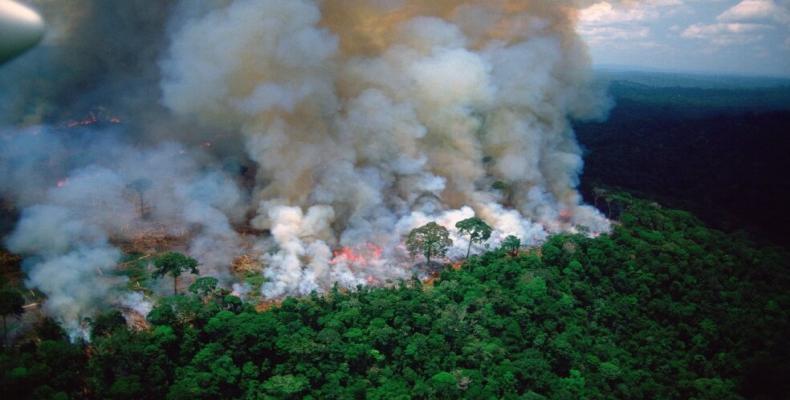Brasilia, January 12 (RHC)-- Brazil’s Amazon region last August registered 30,901 fires, a figure almost three times that for the same month in 2018 and the worst for the month in the last decade, all of this resulting from the drought, the high temperatures and – in large part – deforestation caused by man, a governmental agency has reported.
The number of forest fires in Brazil’s Amazon region increased by 30 percent last year, from 68,345 in 2018 to 89,178 in 2019, while in 2017, a record 107,439 fires were recorded. According to a study released by the National Institute for Space Research (INPE), 2019 was the year with the third-largest number of forest fires in Amazonia since the entity began keeping a tally of fires with the aid of satellite imagery in 1998.
Images of the fires burning huge swaths of vegetation caused a wave of indignation in the international community and among environmental activists, accusing Brazilian President Jair Bolsonaro of bearing much of the blame for the blazes because of his anti-environmentalist rhetoric.
The ultrarightist leader is in favor of exploiting the natural resources of the region and has even accused environmentalists of setting arsons themselves in the Amazon.
Despite the fact that Bolsonaro attributed the increase in the number of fires to the regular August-September drought in the Amazon, experts warned that the dry season in the region in 2019 was not as dry as it had been in 2018 and that the increase in fires could not be attributed exclusively to the climate.
“The great majority of those fires were caused by human action,” said expert Carlos Nobre, a researcher with the University of Sao Paulo and one of Brazil’s key authorities on the Amazon region.
“Our agriculture uses fire as the main tool for cleansing (the earth). Normally, 85 percent of the fires are caused by farmers, but in some areas the fires get out of control and move into cultivated areas and forested areas,” he said.


